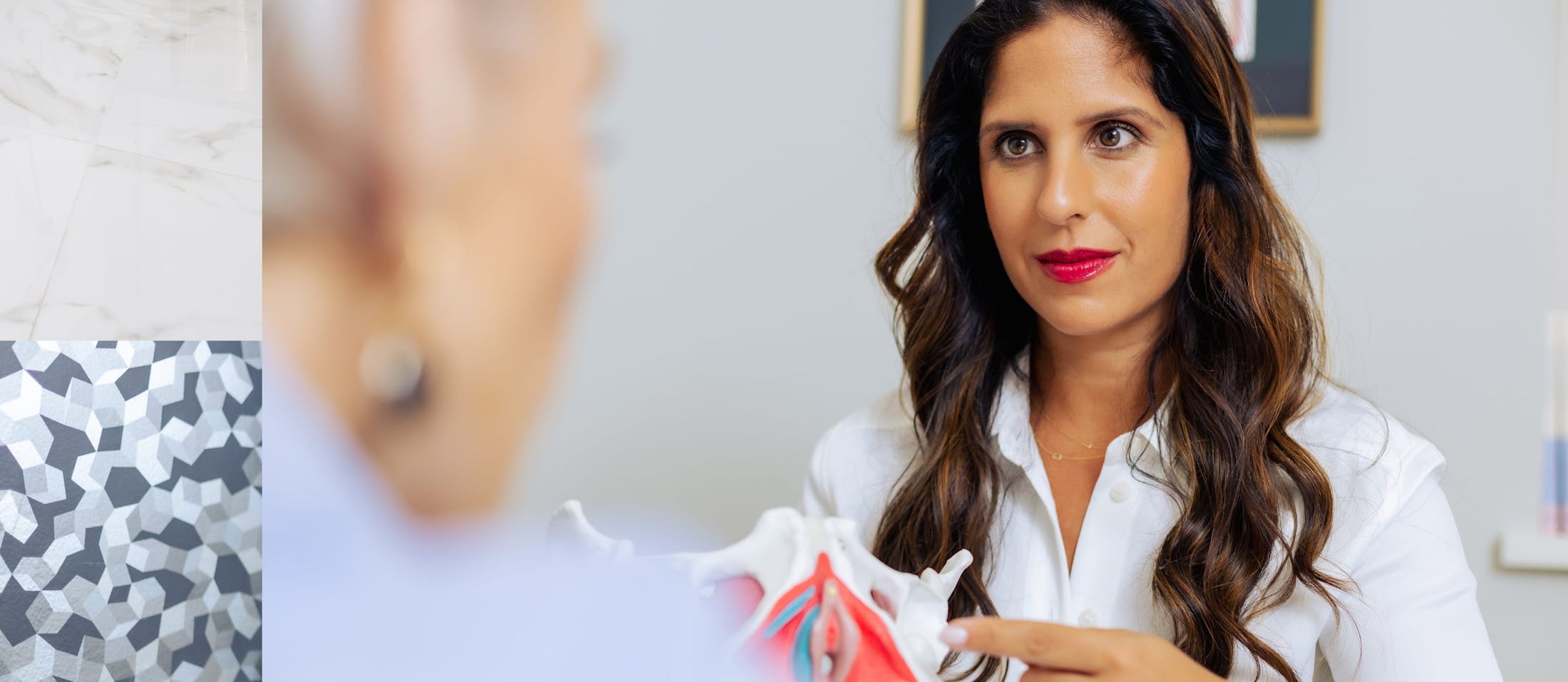
We’re just going to ask the awkward question: is your vulva itchy? If so, there’s no need to be embarrassed. Vulvar itching is an incredibly common pelvic health concern that can have a variety of causes. But just because it’s common doesn’t make it enjoyable! Along with vulvar itching, you may also be experiencing vaginal tears or vulvar fissures, which can range from uncomfortable to downright painful. Here, Pelvic Pain Doc will answer all your questions about vulvar itching and tearing, including:Why is my vulva itchy?What are vulvar fissures?What causes a vestibule tear?Treatment options for vulvar fissures, itching and tearing
Why is My Vulva Itchy?
Vulvar itching is exactly what it sounds like: an uncomfortable itching sensation on your vulva. If you’ve experienced this frustrating pelvic symptom, you may have instinctively passed it off as a yeast infection. While itching is a common side effect of a yeast infection, there are other things that can cause similar symptoms. Here are a few of the most common causes of vulvar itching:
Candida
Causes/symptoms: Candida, the underlying source of a yeast infection, can indeed cause severe vaginal itching. Additional symptoms include swelling and redness of the vulva, burning, pain during urination and sex, and occasionally a thick, white, odorless discharge.
Treatment: Fortunately, yeast infections are not normally contagious and can be treated with over-the-counter creams or oral medications. For recurrent vaginal yeast infections, talk to your doctor about how lifestyle changes can help, including sexual habits, diet and consumption of alcohol.
Contact dermatitis
Causes/symptoms: In many cases, an itchy vulva is the result of an external allergen or irritant, such as laundry detergents, soaps, vaginal health products and more. Using certain products can cause redness, itching and a “raw” sensation around the vulva.
Treatment: If you’re experiencing vulvar itching or tearing, consider whether you’ve started using any new products. If so, eliminate potential irritants one-by-one to pinpoint the cause of contact dermatitis.
Trichomoniasis
Causes/symptoms: This sexually transmitted infection is known to cause itching, swelling, redness, painful urination and pain with sex. It is often accompanied by a foul-smelling vaginal discharge.
Treatment: Trichomoniasis is incredibly common and can be treated with a single dose of antibiotics. To reduce the risk of reinfection, all sexual partners should be treated at the same time and use condoms for future sexual activity.
Herpes
Causes/symptoms: A common type of sexually transmitted infection, herpes can cause outbreaks of small ulcers on the vulva, in the vagina and on the cervix. As the sores open, scab over and heal, they can cause intense itching and pain.
Treatment: While there is no cure for herpes, antiviral medications can limit the frequency and intensity of outbreaks. People with herpes should always avoid sexual activity during active outbreaks and should use condoms during intercourse.
Lichen sclerosus
Causes/symptoms: Lichen sclerosus is an uncommon skin condition that most often affects post-menopausal people. It causes shiny, smooth patches on the vulva that can tear easily, leading to discomfort, itching, bruising and painful intercourse. This condition is not contagious and the cause is unknown, but hormonal problems may be a contributing factor.
Treatment: Treatment typically includes strong steroid creams or ointments to heal the patches and keep them from coming back. To avoid discomfort, wear loose clothing and avoid sitting for long periods of time.
Lichen planus
Causes/symptoms: This non-infectious, itchy rash causes raised red patches on the skin and can affect various parts of the body, including the vagina, vulva and penis. While the exact cause of lichen planus is unknown, the good news is that it cannot be passed on to other people, including sexual partners.
Treatment: There is no one treatment for lichen planus, but we can manage the condition with steroid creams or ointments that control the rash and itching. Lichen planus usually clears up on its own within six to nine months.
What are vulvar fissures?
Vulvar fissures refers to recurrent splitting or tearing of the skin of the vulva. These tears are often caused by irritation or skin conditions, such as lichen sclerosus, but may also result from hormonal changes or damage during vaginal childbirth. Here’s a look at what causes tearing of the vulva or vagina:
Skin conditions
Causes/symptoms: The patches caused by lichen sclerosus are known for tearing easily. This can cause inflammation, redness and pain in the vulva and vagina.
Treatment: As we previously mentioned, using cortisone creams can clear up the patches and reduce their frequency. Talk to your doctor about your options.
Hormonal changes
Causes/symptoms: Decreasing estrogen and testosterone levels during menopause can cause the vaginal tissues to thin, which may lead to tearing of the vulva. Using certain types of birth control pills may also contribute to vulvar tearing.
Treatment: For post-menopausal people, using low-dose estrogen pills or creams can help ease vaginal dryness. For people taking birth control, talk to your doctor about switching to a different pill.
Episiotomy or perineal tear
Causes/symptoms: Vaginal childbirth can cause serious tearing of the vaginal tissues or perineum, often requiring stitching to help heal the damaged tissues. Sometimes, the perineum will be cut during childbirth in a procedure known as episiotomy.
Treatment: Proper hygiene and care is critical during recovery from vaginal childbirth, especially if the birthing parent has experienced tearing or undergone episiotomy. As you recover, try using a peri bottle after urination to reduce discomfort, use an ice pack to reduce swelling and inflammation, and use a pillow if sitting is uncomfortable.
Vestibulodynia
Causes/symptoms: Vestibulodynia, or vulvodynia, is characterized by chronic pain around the vaginal opening that has no identifiable cause and that lasts for at least three months. This condition can make sex, or even using a tampon, impossible. If penetration is attempted, you may experience vaginal tearing, a raw sensation in the vagina, intense itching and/or swelling.
Treatment: Since vulvodynia can cause both physical and emotional distress, a combination of therapies is essential. This may include topical or oral medications, pelvic floor PT or biofeedback therapy, local anesthetics, Botox injections and/or surgical interventions.
Hypertonic pelvic floor dysfunction
Causes/symptoms: If the pelvic floor muscles get too tight, it can cause pelvic pain and gastrointestinal symptoms, such as chronic constipation. In some cases, inserting a tampon or having penetrative sex becomes debilitating. Known as hypertonic pelvic floor dysfunction, this condition can cause both vulvar and anal fissures.
 Treatment: Treatment for hypertonic pelvic floor dysfunction requires retraining the pelvic floor muscles to relax. Pelvic floor physical therapy, yoga, muscle relaxants, warm baths, behavioral health approaches, botox and trigger point injections are all potential treatment options.
Treatment: Treatment for hypertonic pelvic floor dysfunction requires retraining the pelvic floor muscles to relax. Pelvic floor physical therapy, yoga, muscle relaxants, warm baths, behavioral health approaches, botox and trigger point injections are all potential treatment options.
Hair removal
Causes/symptoms: Whether by shaving with a razor or by waxing, removing hair from the vulva can cause minor cuts and tears.
Treatment: Make sure to keep the area clean and dry to avoid infection, and steer clear of harsh or scented products. To prevent further cuts or tears, take extra care when shaving or waxing.
Sexual activity
Causes/symptoms: Penetrative sexual activity may cause tearing, particularly with rough thrusting or vaginal dryness.
Treatment: Always make time for foreplay to prepare the vagina for intercourse and if you’re experiencing vaginal dryness, try using personal lubricants to make penetrative sex more comfortable.
Have more questions about vaginal itching or tearing? We’re here to support you through all your pelvic health concerns. We’re just a call or a click away, so contact us today to book a consultation with Dr. Sonia Bahlani.

